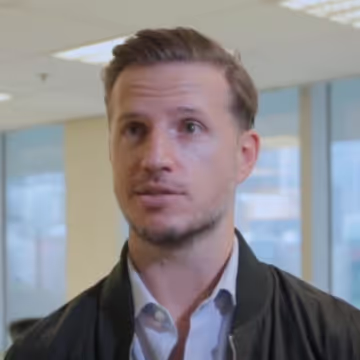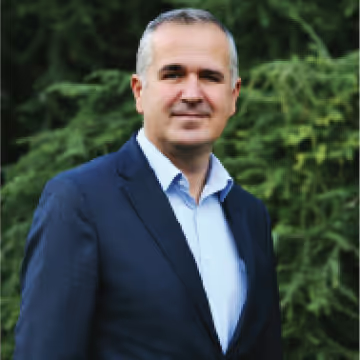Did you know that some residency schemes can cut visa processing from years to mere months, transforming where families live and work? We open with this to show scale and prompt practical questions from Singapore-based investors.
We are Marlow Bray, a private advisory focused on citizenship and residency planning for high‑net‑worth families. We help clients assess options, structure cross‑border affairs and align residence with legacy and estate plans.
Residency typically arrives through qualifying investment such as real estate, business capital or certain financial instruments. These routes often deliver greater international mobility, enhanced business prospects, family inclusion and potential tax efficiency.
Our review compares scheme standards, processing times and compliance expectations across select countries. We frame how residency complements global portfolios and preview country deep‑dives, application steps, timelines, costs and ongoing obligations.
Key Takeaways
- Residency often grants lawful presence, work rights and a platform for longer‑term planning.
- Common investment routes include property, enterprise capital and specified financial instruments.
- Marlow Bray aligns programme choices with regulatory realities and family objectives.
- Due diligence, source‑of‑wealth checks and compliance are essential from the outset.
- Schemes vary in cost, speed and mobility; Singapore investors should weigh regional alternatives carefully.
Mauritian Residency for Investors
Mauritius remains a stable and attractive destination for investors seeking residency through transparent legal frameworks and a high quality of life. We advise clients on aligning property and corporate routes with broader mobility, education, and legacy goals through a discreet and personalised approach.
Property Options:
Residency is commonly obtained through real estate purchases that meet defined investment thresholds. Premium coastal developments appeal to those seeking lifestyle and rental yield, while inland properties often offer lower entry points and stronger long-term growth. Before recommending acquisitions, we evaluate developer credibility, strata regulations, and exit strategies.
Business and Fund Routes:
Investors preferring active or diversified exposure can capitalise a Mauritian enterprise or subscribe to qualifying investment funds. These approaches offer both lawful residence and portfolio diversification.
Timelines and Compliance:
Applications generally take several months from file preparation to permit issuance. Renewals require continued compliance and updated source-of-wealth documentation. We coordinate local banking, conveyancing, and advisers to ensure smooth transfers, safeguard capital, and preserve long-term status for families.
South African Residency for Financially Independent and Business Investors
South Africa offers distinct residence routes suitable for entrepreneurs and financially independent individuals. We help clients evaluate the Financially Independent Permit against business-based options to balance operational goals and presence requirements.
Financially Independent Route:
This option relies on verifiable income or net-worth evidence and minimal local obligations, ideal for those seeking flexibility without active management.
Business Investment Route:
Applicants can qualify by establishing or investing in enterprises that meet specific capital and job-creation criteria, creating opportunities to scale local activity.
Practical Considerations:
Residence rules influence travel and tax planning, so we design workable schedules to maintain status. Processing times typically range from several months to a few years depending on complexity. Our role includes managing all documentation, renewals, and compliance while ensuring family access and long-term mobility.
Seychelles Residency via Business or Property Investment
Seychelles offers straightforward residence options through business incorporation or property acquisition. We provide confidential, end-to-end management to align residency with family lifestyle and long-term objectives.
Business Pathway:
We guide incorporation, governance, and operational planning to meet residence criteria—covering company registration, director structures, and evidence of genuine commercial activity.
Property Route:
We vet titles, zoning, and developer track records to ensure the investment meets legal requirements while providing rental or capital growth potential.
Lifestyle and Compliance:
We map each stage—from profiling and submission to post-approval compliance—so that residence integrates seamlessly with schooling, healthcare, and frequent travel needs. Renewals and ongoing obligations are monitored to preserve status within a broader Indian Ocean investment strategy.
Egyptian Investor Residency
Egypt allows investors to secure residence through property, deposits, or business investments. We help structure qualifying applications that balance exposure, timelines, and risk control.
Qualifying Investments:
Residency may be obtained via property purchases, capital deposits in approved banks, or investments in active enterprises demonstrating economic contribution. Each route requires transparent proof of ownership, governance, and source of funds.
Timelines and Family Planning:
Processing can take several months, and we advise realistic sequencing to avoid delays. Family inclusion, schooling, and healthcare planning are built into every case. We combine asset selection with due diligence to deliver secure outcomes for our clients.
Morocco and Namibia: Emerging Investor Routes
Both Morocco and Namibia are refining investor residence programs to attract foreign capital in sectors such as energy, tourism, logistics, and technology. We benchmark each country’s legal and regulatory environment and identify viable entry routes for our clients.
Typical pathways involve company formation combined with project capitalisation or, where allowed, property acquisition. We align these steps with school calendars and travel windows, ensuring minimal disruption to family routines. Our team establishes governance, compliance, and employment frameworks and continuously monitors regulatory updates to safeguard investor interests—particularly for Singapore-based clients pursuing diversification in Africa.
Comparing Global Residency Options
Investment thresholds, processing times, and mobility outcomes vary across regions. European schemes generally require higher capital but offer predictable frameworks. Caribbean programs often provide the fastest path to citizenship through donations. African and Asian programs present flexible options via real estate, enterprise, or bank deposits.
Residence vs Citizenship:
Residency confers rights within the host state, sometimes including regional access, while citizenship offers long-term security and visa-free mobility. We benchmark cost, timelines, and permanence to design tailored multi-jurisdiction portfolios that balance speed, mobility, and asset value.
Qualifying Investment Types
Eligibility depends on the nature and liquidity of the chosen asset.
- Real Estate: Requires a minimum hold period and verified title; we assess yield and exit options before purchase.
- Business or Fund Investment: Demands strong governance, audited accounts, and structured reporting.
- Government Instruments or Donations: Provide faster outcomes but limited asset upside.
- We coordinate banking, escrow, and compliance to protect investor capital while structuring ownership—personal, trust, or corporate—to align with governance and succession goals.
Documentation and Eligibility Preparation
A well-organised file is critical for approval. Applicants must provide a valid passport, clean criminal record, health cover, and verifiable proof of funds and source of wealth. We assist in preparing certified translations, notarisation, and apostilles, ensuring documentation meets each jurisdiction’s legal requirements. Family documents are reviewed to confirm eligibility for dependants, and privacy safeguards are maintained throughout.
Application Process Overview
Our process begins with detailed profiling to identify suitable programs and continues through file preparation, submission, and monitoring. Once approval-in-principle is granted, we coordinate the investment execution, biometrics, and local registration steps. Renewals and compliance are tracked to maintain status seamlessly.
Tax, Estate, and Legacy Planning
Aligning residency planning with estate structuring preserves capital and ensures continuity. We help coordinate trusts, holding companies, and wills to secure inter-generational transfers and maintain governance across borders. For complex estates, we connect clients with trusted specialists to integrate succession tools while maintaining confidentiality.
Costs and Timelines
We provide clear visibility over all costs—government fees, professional services, third-party expenses, and renewal obligations. Timelines vary by country but typically range from a few months to a year for permit issuance. Transparent budgeting and practical calendar planning allow clients to manage expectations confidently.
Supporting Singapore-Based HNWIs and Family Offices
We specialise in helping Singapore-based investors and family offices navigate global residency and citizenship options. Our team provides discreet comparisons, prepares compliant files, and coordinates investments with strict confidentiality. Post-approval, we manage renewals, monitor compliance, and adapt strategies as regulations evolve to ensure sustained mobility, education continuity, and lifestyle fit.
Conclusion
Securing secondary residence or citizenship requires precision, compliance, and strategy. Each jurisdiction offers distinct benefits in terms of cost, processing time, and mobility rights. At Marlow Bray, we transform complex residency goals into streamlined, practical outcomes—protecting capital, enhancing mobility, and preserving legacy across generations.
FAQ
What are the main residency routes for investors across African jurisdictions?
We typically see four core routes: qualifying real estate purchases, direct business establishment or equity investment, qualifying fund or managed vehicle subscriptions, and government instruments or donations where available. Each route varies by minimum thresholds, holding periods and reporting requirements, so we assess fit against family goals, liquidity needs and succession plans.
Which countries offer the fastest processing times for investor residence?
Processing times differ widely. Mauritius and Seychelles often provide relatively prompt adjudication for approved applications when documentation is complete. South Africa can be efficient for the financially independent permit but business routes may take longer. Egypt and emerging markets such as Morocco and Namibia depend on project complexity. We model timelines for each investor before recommending a pathway.
How do visa-free access and mobility outcomes compare with citizenship programmes?
Residence permits grant rights to live and work but rarely match the travel freedom of citizenship. Visa-free access available to residents is usually more limited and varies by country. For clients whose priority is global mobility, we compare residence outcomes with citizenship by investment options in other regions and advise whether pursuing nationality or long-term residence better meets travel and business objectives.
Can Singapore-based investors use Mauritian residence to access other markets?
Yes. Mauritius is a regional financial hub with favourable treaties and strong business services. Residency can ease market access across Africa and support fund or holding company structures. We analyse treaty networks, tax implications and operational benefits to ensure the residence route aligns with your corporate and family strategy.
What due diligence and compliance checks should applicants expect?
Applicants face rigorous background checks, source-of-funds verification, anti-money laundering screening and sometimes medical clearances. We coordinate certified documentation, assist with source-of-wealth narratives and liaise with local counsel to satisfy regulatory expectations and reduce query cycles during processing.
Are family members typically included in investor residence applications?
Most programmes allow spouse and dependent children to be included. Some allow parents or other dependants under specific conditions. We map family composition to programme rules to confirm eligibility and estimate additional fees or proof requirements for dependants.
What are the ongoing obligations after obtaining investor residence?
Obligations commonly include minimum physical presence requirements, renewal filings, tax reporting, and maintaining the qualifying investment for a set period. We outline renewal mechanics and compliance calendars to avoid inadvertent lapses that could jeopardise status.
How do we assess programme stability and political risk?
We evaluate rule-of-law indicators, government continuity, legal protections for foreign investors, and historical policy shifts. This risk assessment is paired with exit options and diversification strategies so clients can mitigate exposure if regulatory changes occur.
Can residential property purchased for a permit be leased or sold during the qualifying period?
Rules vary. Some jurisdictions require minimum hold periods and restrict leasing; others permit rentals provided ownership is retained. We review title conditions, mortgage implications and local landlord regulations before recommending property investments.
What tax consequences should investors anticipate when securing residence in African countries?
Tax outcomes depend on local residence rules, worldwide versus territorial taxation, double taxation agreements and whether economic activities remain onshore. We coordinate with international tax advisers to model personal and corporate scenarios and recommend structures such as trusts or holding companies to optimise tax and estate plans.
Are donations or government contributions still used as qualifying options?
In Africa, direct donation routes are less common than real estate and enterprise options, but some programmes maintain government instruments or development funds as alternatives. We check current regulations and the transparency of fund use before proposing these routes.
How do we structure investments for family legacy and succession?
We advise on ownership through personal, trust or corporate vehicles depending on inheritance goals, reporting needs and asset protection. Succession planning should align with both residence rules and cross-border estate law to ensure continuity for multi-jurisdiction families.
What are typical government and advisory fees associated with investor residence?
Costs (typically) include application and due-diligence fees, government processing charges, investment sums, legal and advisory retainer fees, plus ongoing compliance expenses. We provide a transparent cost estimate up front and a total value assessment covering short-term and lifecycle costs.
How do we help clients choose between Africa, the Caribbean, Europe or Asia for residency?
We compare investment thresholds, processing times, mobility outcomes, lifestyle fit and economic opportunity. For Singapore-based HNWIs and family offices, we emphasise tax neutrality, treaty benefits and business connectivity to ensure the chosen jurisdiction supports commercial and personal ambitions.
What documentation should applicants prepare before initial engagement?
Prepare passport copies, proof of funds, bank references, business registration documents (if applicable), certified criminal record checks, medical certificates and a source-of-wealth statement. Early preparation reduces delays and helps us match you to programmes with the highest probability of success.
How long after approval must the qualifying investment be executed?
Deadlines vary: some programmes require investment within weeks of approval-in-principle, others allow several months. We manage timelines closely to ensure compliance with purchase, company formation or fund subscription conditions and to coordinate transfer logistics.
Can business owners use local company formation to qualify for residence?
Yes. Many jurisdictions permit investor residence through establishing or acquiring a business that meets job creation or capital thresholds. We assess sectoral focus, licensing needs and operational commitments to ensure the business route is both viable and compliant.
Do investor residence permits lead to permanent residence or citizenship?
Some residence routes can lead to permanent residence after meeting residency and investment conditions; citizenship is rarer and often subject to longer residency periods and stricter criteria. We outline realistic pathways and timelines for long-term status objectives.
How do we ensure confidentiality and discretion during the process?
We operate under strict client confidentiality protocols, use vetted local partners and manage filings to limit public exposure. For high-net-worth clients, we tailor communication channels and document handling to meet privacy and security expectations.























